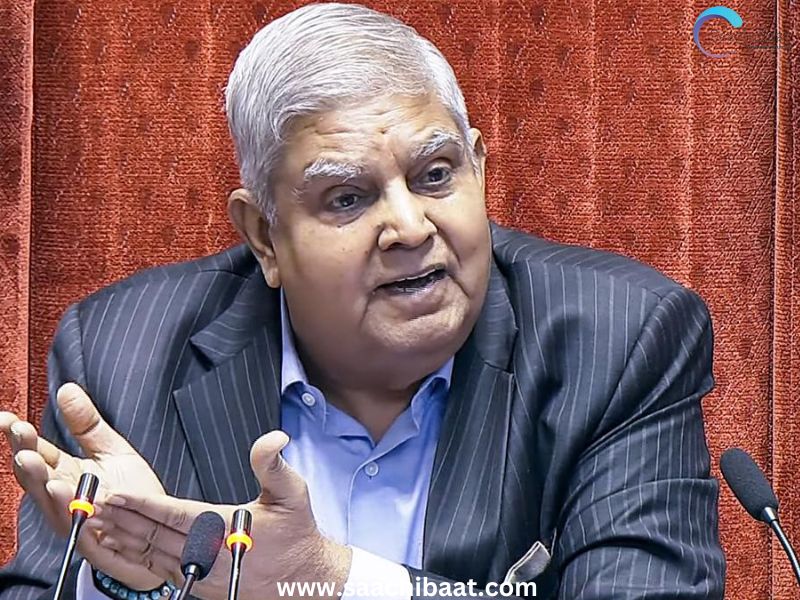Vice President Jagdeep Dhankhar has lashed out at the Supreme Court’s invocation of Article 142 of the Constitution, stating it has now become a “nuclear missile.” His criticism follows recent verdicts by the court, which he says sidestep democratic institutions and establishes ominous precedents for interpretation of the Constitution.
‘Democracy flourishes with separation of powers,’ asserts Dhankhar
While speaking at a legal seminar in Delhi, the Vice President highlighted the need to preserve the constitutional balance between the legislature, executive, and judiciary. He contended that Article 142, which gives the Supreme Court special powers to issue any order required to do complete justice, was being utilized in a manner that erodes this balance.
“Democracy survives only if every organ adheres to its limits. “Where Article 142 is invoked to override legislative will, it destabilizes the environment of governance,” Dhankhar said, saying that the expanding role of the judiciary in shaping policy is a bad precedent to set.
Recent SC judgments create controversy over judicial overreach.
The remarks are generally taken to be in reaction to recent landmark judgments of the Supreme Court, such as those on electoral bonds, same-sex marriage, and appointment procedures in important institutions. Dhankhar, who has always complained about what he sees as judicial overreach, reaffirmed that Parliament alone is the custodian of the people’s mandate, and that its laws cannot be unraveled by the judiciary unless there is an apparent constitutional violation.
Opposition and legal experts react with restraint
Though Dhankhar’s comments received applause from certain political circles, especially the ruling BJP, opposition members and legal experts reacted with restraint and advised against targeting the judiciary. They contended that Article 142 is an essential tool to resolve legal logjams and provide justice in instances where legislative provisions are inadequate.
Senior lawyer Prashant Bhushan replied by stating, “Article 142 is not a weapon, but a remedy. Its use is warranted when laws are silent or ambiguous.”
A wider debate on separation of powers was rekindled.
Dhankhar’s criticism has become a fresh spark to the national conversation about the court’s place in a democracy and the limits on its power under the Constitution. With demands mounting for sharper institutional boundaries, this conflict of views is set to impact not only the legal debate but the political narrative overall in the next few months.
××××××××××××××
Telegram Link :
For latest news, first Hand written articles & trending news join Saachibaat telegram group
https://t.me/joinchat/llGA9DGZF9xmMDc1


